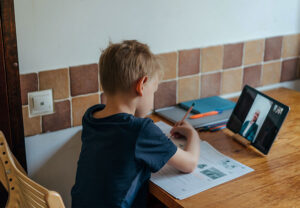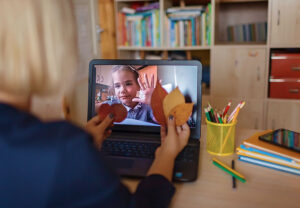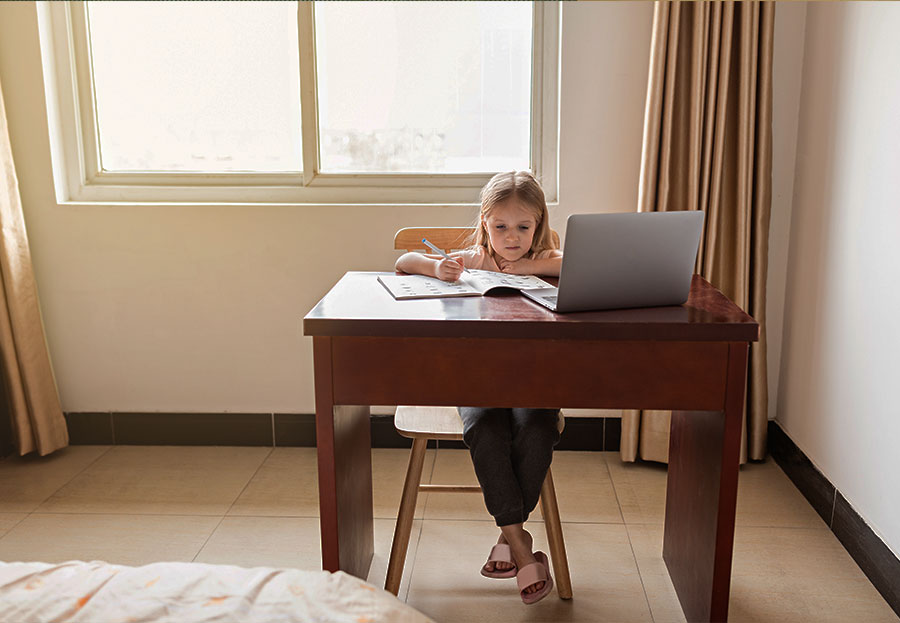Education Beyond the Pandemic…
Thanks to a worldwide pandemic, we have encountered a set of circumstances that have never existed before in our society. Or have we?
Interestingly, there have been similar situations throughout history that might give us a glimpse of what’s ahead. Naturally occurring periods of interrupted schooling have been documented. First, it is important to consider how our intellectual development depends on education. Intelligence tests measure our ability to learn new information, remember, and problem-solve. Most of us expect our intelligence is a fixed trait we have little control over.
The good news is that we have a range of characteristics that increase our intelligence such as motivation, effort, and persistence through challenge. These assets lead us to make the most of our potential. One other factor involves consistent learning opportunities like we receive at school.
 Throughout World War II and the Nazi Siege, data was collected on intelligence scores while children were unable to attend school and was compared to those who continued to attend. Intelligence was seven points higher for children attending without interruption. Also, transient children in London who lived on canal boats and did not attend school regularly showed a steady decline in their intelligence. Children attending regularly demonstrated no decline. Indian children with no teachers in their villages experienced a drop of five IQ points each year they missed school. Several other studies over time have yielded similar results. Most unnerving of all, research in Germany and Israel concluded that one year of formal education is equal to twice as much as one year of age (life experience), according to Nisbett, 2010).
Throughout World War II and the Nazi Siege, data was collected on intelligence scores while children were unable to attend school and was compared to those who continued to attend. Intelligence was seven points higher for children attending without interruption. Also, transient children in London who lived on canal boats and did not attend school regularly showed a steady decline in their intelligence. Children attending regularly demonstrated no decline. Indian children with no teachers in their villages experienced a drop of five IQ points each year they missed school. Several other studies over time have yielded similar results. Most unnerving of all, research in Germany and Israel concluded that one year of formal education is equal to twice as much as one year of age (life experience), according to Nisbett, 2010).
All these studies suggest that consistent education is vital to the development of children’s ability to learn and their future abilities. My personal mantra is: The more you learn, the more you can learn.
It stands to reason that our current generation of children may encounter less academic growth than is typical as a result of the pandemic. Many educators are concerned that students who are highly motivated and self-disciplined will fare well in this environment of virtual or hybrid learning. However, those who need reassurance, support, or direct instruction may struggle creating a gap in achievement.
The takeaway here is; education matters. Educators have faced judgement on each side of the fence. If they favor returning to school, they have been criticized for not caring for public health. If they object to in-person instruction people have said they are lazy. Everyone has their own perspective as they should, but I have heard from many teachers in several states and countries that they are devoted to their students and worry about the future repercussions of what is happening.
 Whatever our communities decide is the proper course of action, we know certain things. Teaching virtually or by other set-ups is not easy. Teaching and supporting your children at home is not easy. While we can only control a limited number of things these days, keep a few ideas in mind.
Whatever our communities decide is the proper course of action, we know certain things. Teaching virtually or by other set-ups is not easy. Teaching and supporting your children at home is not easy. While we can only control a limited number of things these days, keep a few ideas in mind.
You can stimulate your child’s development at home through daily reading time, nature walks tied to science, the use of measurements in the kitchen, games that require memory, and doses of documentaries or learning videos. Supporting instruction is critical. You can set up structure for learning and make education a priority by removing distractions and entertainment during blocks of learning time. Provide encouragement with patience and model resiliency. We are all partners in the education of our future leaders. Why not send encouragement to a child and teacher today.






Leave a Reply